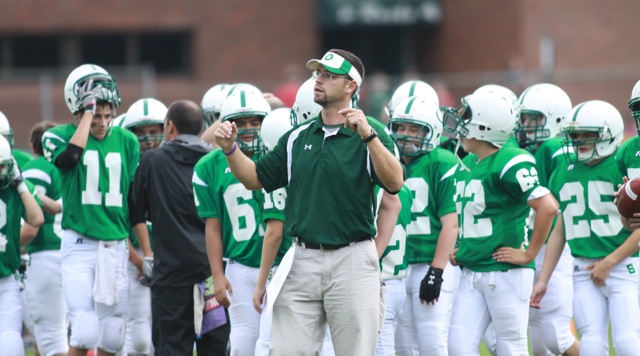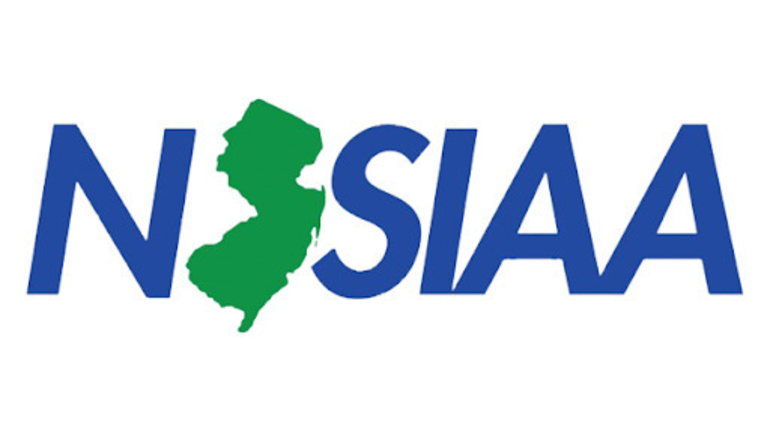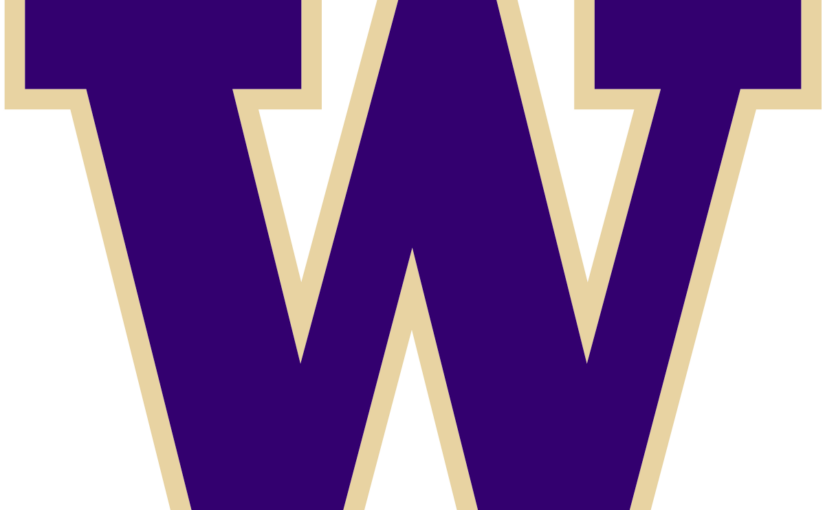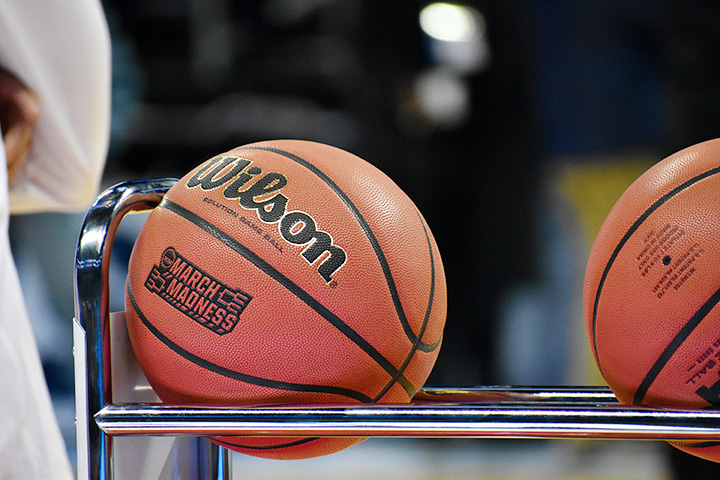Challenges of hiring & retaining coaches
For whatever reason—and there can be a myriad of them, you have a vacancy on your staff, and you need to hire a new coach. In the past, this might simply mean posting the position within your school district, reviewing the applications, interviewing a few individuals, and the process was completed. Times have changed, however, and it may now be a little more complicated and involved.
While posting your vacancy in different mediums in your area is normally considered the first step, there is another exercise that is essentially much more important. You need to seriously analyze and determine what you value and are looking for in your next coach. This step should go beyond considering whether an individual has the requisite knowledge of the skills and strategies that are involved in the sport. You want to establish, if the candidate:
 Understands and embraces the education-based athletics concept.
Understands and embraces the education-based athletics concept.- Puts the student-athletes’ growth, development, and welfare above his or hers
- Interacts with athletes in a positive, supportive, and nurturing manner
- Exhibits good sportsmanship and serves as a positive role model for his or her team, the athletic program, and the school
- Post a notice on your state association website. Some states have a special section actually labeled “Coaches Needed,” or with some similar heading where you can post your vacancies.
- Network with your athletic administrative colleagues. Their coaching staff may be totally filled, but there could be a teacher with interest but unable to currently work within their program.
- Check with former coaches to see if they know anyone who might be available and interested. This could possibly include their colleagues at neighboring schools or their own former assistants.
- Contact former players in the particular sport and ask for their help in locating candidates. Particularly if these individuals are college graduates and 21 years old, they themselves could apply.
- Ask the head coaches of colleges in the area that offer the sport to see if they have any former players who might be interested. There might also be an athlete who no longer plays due to an injury or having used up his or her eligibility.
After sifting through the resumes and applications, schedule interviews for the top five or six candidates. But before you sit down with the first individual, spend considerable thought and time developing questions that will help you identify the best person to fit into your education-based program. These questions have to be specific in order to gain insight as to whether the candidate truly understands and embraces this philosophical concept, and that they also have the qualities and traits to provide the best environment for your student-athletes.
In many interviews, the person conducting it will direct the candidate to, “Please take a minute or two and tell me something about yourself.” This gives the individual a chance to say a few things, get over the initial nervousness, and to perhaps feel a little more relaxed in order to make a positive impression. But don’t overlook the insight that can be gained from this preliminary offer. Be attentive and you may detect a few red flags or some outstanding traits before you even ask your first question.
One of the many typical questions that you might pose would be, “Please take a minute or two and explain your offensive philosophy.” In many sports, there can be a variety of ways to approach all aspects of the game and the same could be said for an offensive philosophy. You aren’t really evaluating one philosophical approach over another, but you want to determine how clearly the candidate can explain it. Why? Because a coach will have to explain his or her basic philosophy to athletes and their parents, and if it isn’t clear to you then it could be a real problem in your program.
But beyond the basic, commonly used questions, it is critically important that you develop some that will provide insight specifically with respect to the realm of education-based athletics. Assuming that this philosophical concept is the foundation of your program, you want to identify the best individual who embraces it and will create the best environment for your student-athletes. The following are a few examples of questions that fit within this parameter.
- Ask the candidate to share a specific incident of poor sportsmanship involving his or her team and how he or she handled it. Most individuals being interviewed know enough to proclaim that they believe in and promote good sportsmanship, but asking for a specific example provides much more insight.
- Likewise, ask the person being interviewed to share one or more ‘Teachable Moments’ that he or she used with his or her team. If the candidate isn’t sure of what this educational technique is or how and when it is used, you have gained an important piece of information.
- Specifically ask why he or she wants to coach at your school. Of course, there is a vacancy, and perhaps this involves the opportunity to become a head coach. But this is an opportunity to see if the candidate has done his or her homework. Does the individual know anything about the type of athletes that you have, the history of the program, the parental involvement, the culture of the school, and the community expectations? Since you are trying to determine the best fit, this answer can shed some possible light and possibly distinguish one candidate from the others.
- Create additional questions that will further examine the candidate’s real understanding and commitment to education-based athletics.
Once you have completed and selected the best individual, you need to notify the others who were not selected, and this does not only include those who interviewed but everyone who applied. Normally, you would call the successful candidate, and either write a brief standard letter or email message to those who were not offered the position. Out of common and professional courtesy, this step has to be undertaken as soon as the successful candidate has accepted the offer.
Of course, filling a vacant position is an initial step, you also want to retain as many outstanding coaches as you possibly can. Why? The corporate world discovered that it is time-consuming and expensive to continually hire and train employees. This is a lesson that athletic administrators would also be wise to incorporate.
With every new hire, even if the individual has experience, you need to mentor the successful candidate because he or she is new to your setting. This means that there are policies, procedures, culture, and even simple things such as where things are stored that have to be shared and learned. All of this takes time and effort.
There will always be a few coaches who may leave their positions every year due to family considerations, moving onto a new position, working on a graduate degree, or simply retiring after a long career. This is normal, but you want to retain as many exemplary ones as possible. Why? They have proven that they place the growth, development, and welfare of your students first, have the right qualities, work hard, and provide consistency so that athletes and parents know what to expect.
Since you probably cannot reward outstanding coaches with salary increases—most public schools operate with board-negotiated, standard salary scales, showing appreciation, concern, and support is the best way to retain your coaching staff.
» ALSO SEE: Strength training principles for football athletes
- Publicly praise and thank your coaches at every opportunity in pre-season parent meetings, at awards programs, in postings on your website, in articles for your parent-teacher association newsletters, in social media, and with any other vehicle and medium possible.
- Stand behind and support your coaches if they are ever confronted or attacked by unreasonable, misguided parents.
- Be available to listen, and offer advice and help when a coach needs it, and this may not always be convenient in your schedule.
Hiring, mentoring, and retaining coaches takes a great deal of time and effort. Collectively, they may be among the most important responsibilities that you have, because these individuals come in direct contact with and impact your student-athletes. Coaches are an essential part of a successful education-based athletic program. You will find more information and details concerning the aspects of hiring, mentoring, and retaining coaches in Leading an Education-Based Athletic Program (Hoch, D., 2022).





